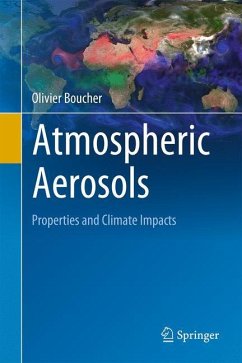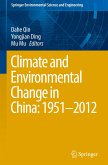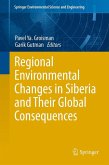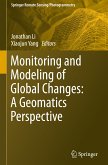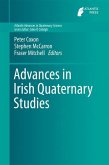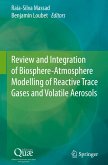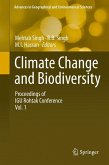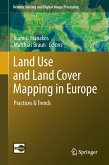This textbook aims to be a one stop shop for those interested in aerosols and their impact on the climate system. It starts with some fundamentals on atmospheric aerosols, atmospheric radiation and cloud physics, then goes into techniques used for in-situ and remote sensing measurements of aerosols, data assimilation, and discusses aerosol-radiation interactions, aerosol-cloud interactions and the multiple impacts of aerosols on the climate system. The book aims to engage those interested in aerosols and their impacts on the climate system: graduate and PhD students, but also post-doctorate fellows who are new to the field or would like to broaden their knowledge. The book includes exercises at the end of most chapters.
Atmospheric aerosols are small (microscopic) particles in suspension in the atmosphere, which play multiple roles in the climate system. They interact with the energy budget through scattering and absorption of solar and terrestrial radiation. They alsoserve as cloud condensation and ice nuclei with impacts on the formation, evolution and properties of clouds. Finally aerosols also interact with some biogeochemical cycles. Anthropogenic emissions of aerosols are responsible for a cooling effect that has masked part of the warming due to the increased greenhouse effect since pre-industrial time. Natural aerosols also respond to climate changes as shown by observations of past climates and modelling of the future climate.
Atmospheric aerosols are small (microscopic) particles in suspension in the atmosphere, which play multiple roles in the climate system. They interact with the energy budget through scattering and absorption of solar and terrestrial radiation. They alsoserve as cloud condensation and ice nuclei with impacts on the formation, evolution and properties of clouds. Finally aerosols also interact with some biogeochemical cycles. Anthropogenic emissions of aerosols are responsible for a cooling effect that has masked part of the warming due to the increased greenhouse effect since pre-industrial time. Natural aerosols also respond to climate changes as shown by observations of past climates and modelling of the future climate.

